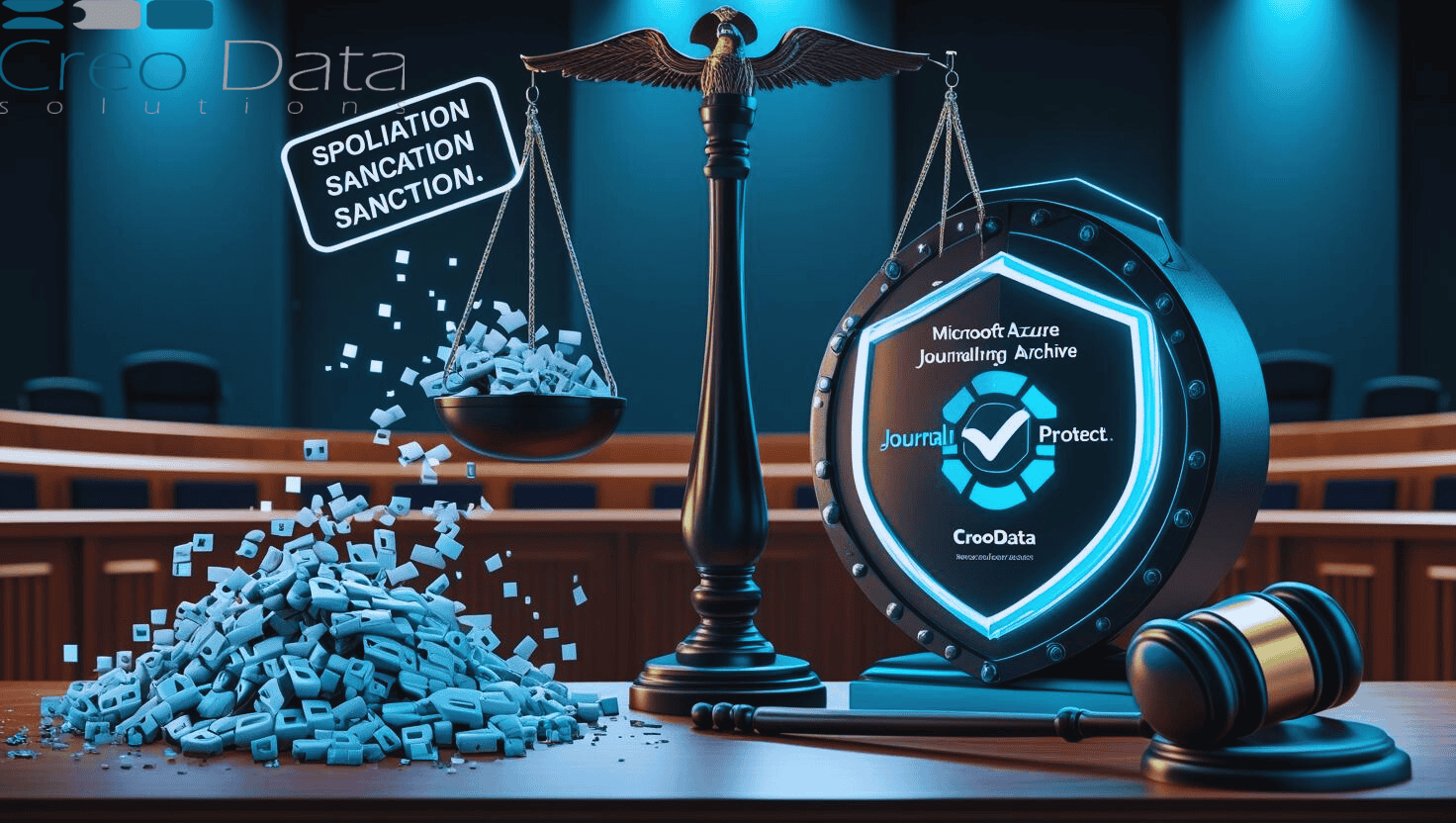Legal Hold vs. Email Deletion: Why Journaling Matters for Legal Litigation Readiness
Understand the critical difference between legal hold and email deletion policies, and how journaling ensures compliance and prevents spoliation in legal disputes.

Introduction
In today's digital business landscape, email communication is a critical component of corporate operations—and often a key source of evidence in legal disputes. Organizations must balance compliance, data retention policies, and litigation readiness while ensuring they do not inadvertently destroy evidence (spoliation) that could be crucial in court.
This article explores:
- The difference between legal hold and email deletion policies
- How journaling ensures compliance and prevents spoliation
- The role of Microsoft Azure-powered solutions (like CreoData's Mail Journaling) in maintaining litigation readiness
- Best practices for organizations to stay legally protected
Understanding Legal Hold vs. Email Deletion
1. What is Legal Hold?
A legal hold (or litigation hold) is a process that suspends the automatic deletion of emails and other electronically stored information (ESI) when litigation is anticipated or ongoing. It ensures that relevant data is preserved for eDiscovery and legal proceedings.
Key Aspects:
- Mandated by courts under various national data protection and litigation laws
- Applies to all employees who may possess relevant data
- Failure to implement can lead to spoliation sanctions, fines, or adverse judgments
2. The Risks of Email Deletion Without Journaling
Many organizations enforce automatic email deletion policies to manage storage costs and comply with data privacy laws (e.g., GDPR). However, if emails are deleted before a legal hold is enacted, critical evidence may be lost—leading to:
- Spoliation of evidence: Intentional or accidental destruction of data
- Legal penalties: Courts may impose sanctions, including case dismissal or adverse inferences
- Reputational damage: Loss of trust from clients and regulators
3. What is Email Journaling?
Email journaling is an automated process that captures and stores all email communications in a secure, unalterable repository—independent of user actions (like deletions).
4. How Journaling Helps in Litigation Readiness
When litigation arises, organizations must prove they have preserved relevant data. Journaling eliminates the risk of spoliation by:
- Automatically archiving all emails (sent, received, internal, external)
- Preventing tampering or deletion by end-users
- Integrating with legal hold systems to ensure seamless compliance
5. The Role of CreoData's Mail Journaling
Modern journaling solutions, like CreoData's Mail Journaling, leverage Microsoft Azure's secure cloud infrastructure to provide:
- ✔ Scalability: Handle large volumes of email data without performance issues
- ✔ Security: Encrypted storage with Azure's compliance certifications (ISO 27001)
- ✔ Searchability: AI-powered indexing for fast eDiscovery retrieval
As a certified Microsoft Partner, CreoData ensures enterprise-grade reliability, making it an ideal solution for legal and compliance teams.
6. Steps to Ensure Litigation Readiness
- Adopt a centralized journaling solution (e.g., CreoData's Mail Journaling)
- Define retention policies aligned with legal and regulatory requirements
- Train employees on legal hold obligations
- Regularly audit compliance to avoid gaps in data preservation
7. Why Choose a Cloud-Based Journaling Solution?
- Cost-effective: No need for on-premises storage maintenance
- Disaster recovery: Azure ensures data redundancy
- Global accessibility: Legal teams can access archives from anywhere
Conclusion
In legal disputes, email evidence can make or break a case. Organizations must implement journaling solutions like CreoData's Mail Journaling (powered by Microsoft Azure) to:
- ✓ Prevent spoliation risks
- ✓ Maintain litigation readiness
- ✓ Comply with global regulations
By combining automated journaling with legal hold processes, businesses can protect themselves from costly legal consequences while ensuring seamless compliance.
Who Needs This?
- Legal & Compliance Teams (Corporate Counsel, Compliance Officers)
- IT & Security Professionals (CIOs, CISOs, IT Administrators)
- Risk Management Executives
- Financial & Healthcare Organizations (Subject to strict data retention laws)
For more information
Learn more about CreoData's Mail Journaling solution at: https://www.creodata.com/products/mail-journaling/
